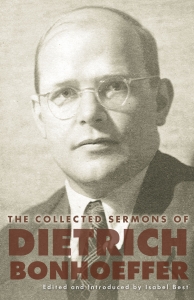
The messianic banquet imagined by the Jewish sages nurtures attitudes of respect, blessing, recognition, and wonder. These comportments converge in humility, an earthbound ethic that we practice together, through speech, action, and the work of dwelling.

Taubes’s novel continuously asks how we distinguish—if we can—between dreams, life, and books. Who or what speaks to the one who dreams? To the reader of a novel? Are dreams and novels and other kinds of books various mediums through which the dead speak? Can we hold this to be true while still honoring the dead as dead?

If religious norms are considered to be rational, how are they different from secular ones? This essay revisits this question through the prism of the Jewish discourse of the reasons for the commandments.

The sermon below is taken from “The Collected Sermons of Dietrich Bonhoeffer,” edited and introduced by Isabel Best. // The overcoming of fear—that is what we are proclaiming here. The Bible, the gospel, Christ, the church, the faith—all are one great battle cry against fear in the lives of human beings. Fear is, somehow or other, the archenemy itself. It crouches in people’s hearts. It hollows out their insides, until their resistance and strength are spent and they suddenly break down. Fear secretly gnaws and eats away at all the ties that bind a person to God and to others, and when in a time of need that person reaches for those ties and clings to them, they break and the individual sinks back into himself or herself, helpless and despairing, while hell rejoices….

Christ is the Lord of the storm. We can leave fear behind and cross over to the other shore.

The storm at sea is one of the most potent experiences and images of chaos. Jesus’ miraculous calming of the storm is an image, not merely of his power with regard to nature, but also of his mastery over the chaotic political elements that threaten us.





